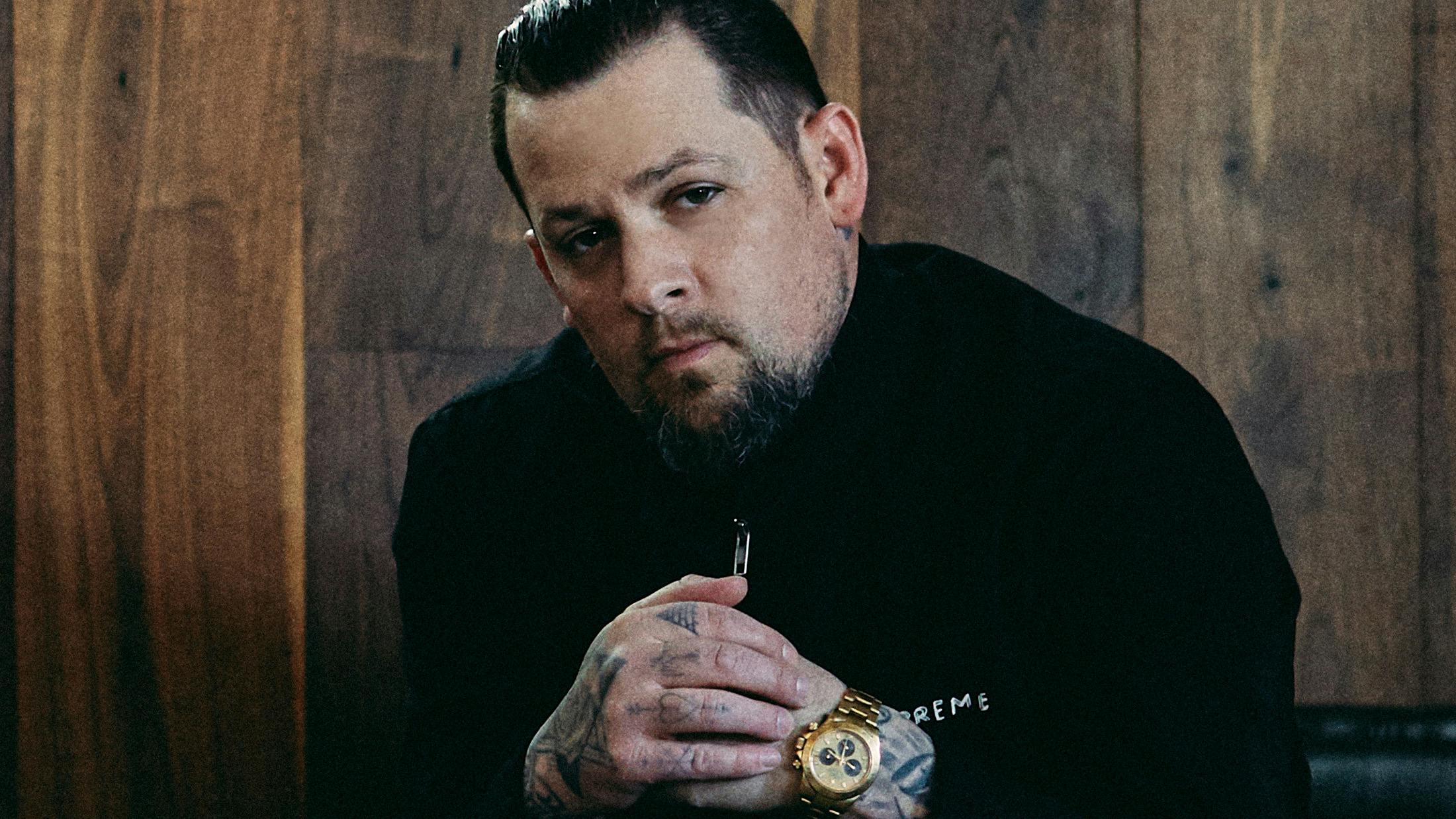When Good Charlotte started out, did you feel like you were treated differently to the rest of the bands in the scene?
“From my perspective, Good Charlotte was always a little on the outside of everybody, and I didn’t always know where we would fit in. We weren’t exactly like all the other bands in the genre, and we weren’t necessarily the ‘face’ of a genre either. We weren’t always included in certain things, and people didn’t know what to do with us. We were just different, and I totally understand that now. When you’re young, you wanna be included – and sometimes we were, sometimes we weren’t – but we always accepted that as the fate of our band. Good Charlotte were never nominated for a GRAMMY, and that was something that I always found myself wishing for, but I accepted that we just are what we are. We can’t be anything else, and if we ever tried it never felt right, so we had to just be ourselves and be happy with the results. As a band, we learned how to be resilient, and we learned how to keep going. I think the greatest thing about Good Charlotte is that we always get back up. Over a long period of time people will look at the highlight reel, but in between are the lowlights, and I think those are the ones that are the most important. If a band can move through the difficult times and survive this hard industry, then that’s really what defines them. We’re in an industry that doesn’t necessarily lend itself to bands succeeding, so you have to have the stomach to push forward.”
Was there ever a point where you felt like you finally fitted in?
“We understood it later on, when we realised that the most important thing that we could do was be true to ourselves. On each record, we had to block it all out and make the music that we felt, and that was always when we got the best response from fans. Honestly, the first four albums were all similar, but I think we stepped off the path a little bit on our fifth record [2010’s Cardiology]. It was a difficult time. I wouldn’t change a thing, though, because we wouldn’t know what we know now if we hadn’t made that record. I love the record for that reason, because I can hear us struggling. We learned to stay true to our feelings and let the rest sort itself out. I really appreciate having to go through that experience.”
Was it hard to create music with that whirlwind surrounding you?
“When I was younger it was hard, because I didn’t quite understand the whirlwind of it all. I was probably a lot more insecure about myself, and I wasn’t sure about the future. We love Good Charlotte, and we wanted us to be liked, and we wanted to earn people’s respect. So when you’re young and you’re going through all that stuff, there’s a lot of pressure – both self-induced and outside – as well as the personal, emotional side of just growing up. At this stage, because I’m in a different place, I can look back and reflect on that with some real perspective. We were imperfect, and we were just figuring it out, but I think – whether we believed in ourselves or not – we were always ambitious, and always hungry to try to achieve things.”
What was it like being so young and suddenly selling millions of records?
“In the early successes, I don’t think we actually realised what we were achieving for our age. I don’t know if we fully appreciated it, in the sense of how difficult that could be, or what that meant. But I think what we really did appreciate, coming from nothing and having nothing, was all of a sudden we were considered valuable. We hadn’t felt that way our whole lives, and no-one ever treated us like we were special. And then all of a sudden everyone does – that was a really interesting experience. Working that out can be pretty confusing, as well as exciting. It’s everything – it’s all good and bad, all in one.”
